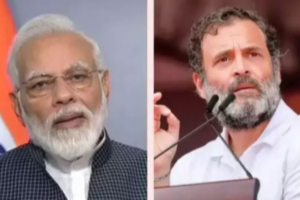The real reason for Air India’s losses is the intrinsic nature of the government and its employees. They are loath to work. The national carrier should be privatized along with other Public Sector Undertakings. We must not tax the people to keep Air India afloat ~ BHARAT JHUNJHUNWALA
Air India, our national carrier, is in trouble. The Government has invested Rs 16k crore in the past four years and yet it has been incurring losses. This amount is equal to a tax of Rs 500 per family. This money has been extracted from every family to keep Air India afloat.
One major reason for the losses is overcrowding in the sky. A large number of private airlines have entered the market but there is not enough demand for their services. The most inefficient among them have to close down. This is the natural process of the market. Say four paan shops are set up at a road intersection. The customers get distributed among them. All of them suffer losses. However, the one that provides the best quality at the lowest price survives. The others close down. This is how the market serves the customers. New players enter with new products; overcrowding takes place; the inefficient among them close down; the efficient survives and the consumer gets better goods at lower prices. The customer would be forced to make do with bad products year after year if such overcrowding was prevented. This overcrowding led to the closure of Kingfisher, and is now threatening Air India. This is at once a positive and beneficial aspect of the market.
Air India is losing about Rs 11 crore per day. There are two reasons for this. The immediate cause appears to be the ill-planned merger of Indian Airlines and Air India in 2007. The two companies had different characters…. much like tea and coconut. Indian Airlines was operating on short routes with smaller aircraft. Air India was flying on longer routes and with bigger aircraft. The pay packets of pilots was higher in Air India, and this posed a problem after the merger. Indian Airlines pilots sought parity with belonging to Air India. This problem is yet to be sorted out and the resultant dissatisfaction is inevitable. Moreover, the combined entity has become unwieldy to manage.
But these factors are superficial in relative terms. The real reason for the losses is the intrinsic nature of government and its employees. They are loath to work. The banks were nationalized in the 1960s and the work culture changed overnight. The employees became rude and sloppy almost immediately after nationalization. They realised that it was no longer necessary to work and that it was virtually impossible for them to be dismissed. This government culture is the fundamental problem of Air India. It has been remarked, tongue firmly in cheek, that flights take off when the pilots wake up and reach the airport. Delay of one flight in the morning sets in a chain of delays of all the connected flights. Major decisions of the Air India management have to be vetted by the Secretary to the Government. The decision to phase out old and dilapidated aircraft and induct new ones was delayed because the civil aviation ministry could not make up its mind. Such delays can be extremely damaging for the business. Aircraft are not utilised to the desirable extent. A report by the CAPA Center for Aviation states that only 100 out of 127 aircraft were being used by Air India. The daily flight time was also less compared with the industry’s average. These problems are rooted in the very nature of government servants.
Admittedly, there has been some improvement in the functioning of Air India over the past two years. But this is unlikely to be of much help. The collapse of Kingfisher had provided a short golden window which has enabled Air India to show some improvement.
The national airlines of other countries are suffering a similar fate. According to one report, Air France, Alitalia of Italy, Sabena of Belgium, Olympic of Greece and Iberia of Spain have all been bailed out by their governments to keep them afloat. JAL of Japan had gone bankrupt in 2009. It has been downsized and revamped. State-owned national carriers simply cannot face the intense global competition in the sector.
If some other public sector undertakings have been successful, it is because they receive indirect financial assistance from the government. I shifted to Uttarakhand from Delhi. The only bank near my home was the State Bank of India. The SBI had set up a network of branches across the country with government support. It is now reaping the benefits of that investment and earning a profit.
The Vajpayee government had initiated a policy of privatization under the leadership of Arun Shourie. Companies like BALCO were privatized. The entrepreneurs took over and government control ended. Manmohan Singh has turned that policy on its head. He has embarked on a policy of disinvestment instead of privatization. A portion of the shares of the company are sold to investors. Control remains with the Ministers and Secretaries. Additionally they get to spend the money received from disinvestment. The objective of the reforms was to make the government lean and thin. It has become bloated under the United Progressive Alliance.
The new government to be formed after the Lok Sabha elections should abandon Manmohan Singh’s disingenuous policy. Air India should be privatized along with other Public Sector Undertakings. The money received should be used to establish new PSUs in pioneer areas. Indian space and defence scientists have developed considerable ability in satellite delivery and imagery and communications. Agencies such as the Indian Space Research Organization lack the commercial perspective to sell these services to buyers across the world. A PSU must be established to sell these services. Genetic and biotechnological research is another area. We have the scientific expertise. But one has to make a large number of experiments. The critical mass of investment required is very large and carries a degree of risk. The Indian private sector is not rising to the occasion. A PSU should be established to develop and commercialize these technologies. Let us set up a Monsanto in the public sector. We must not tax the people to keep Air India afloat.
The writer is former Professor of Economics, Indian Institute of Management, Bangalore.











